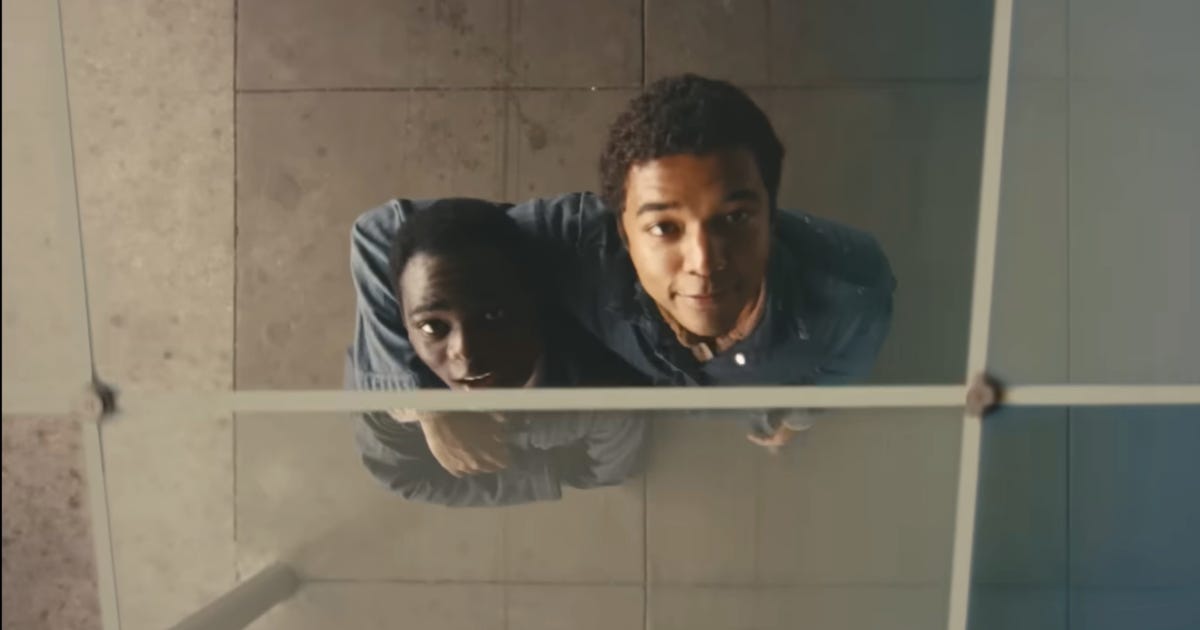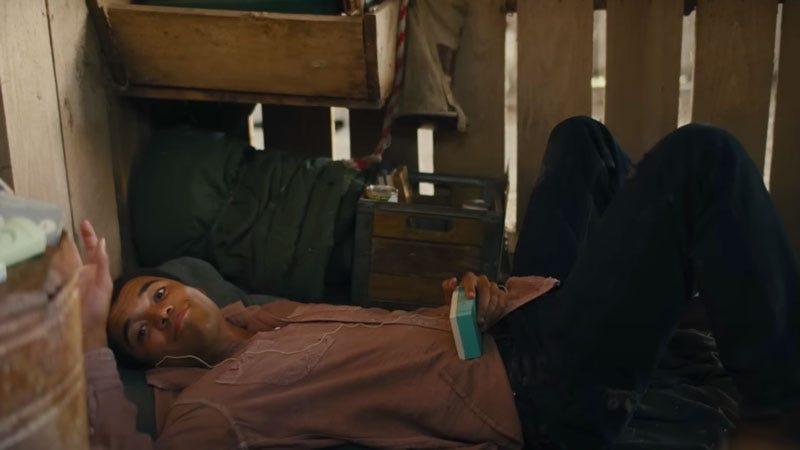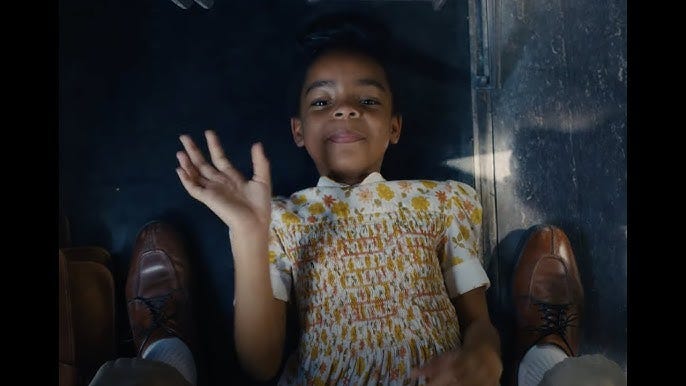If there's one movie in 2024 that gave me hope for the future of cinema, it would be RaMell Rose's Nickel Boys. It makes me so goddamn happy that we still have ambitious and daring visionary storytellers who are willing to challenge us as an audience. Nickel Boys isn't just a deep insight into our dark history as a country but an honest look at the scars that have lingered into today. The film highlights that this story isn't that old and still relevant today, and we must confront those realities. It features some of the most beautiful cinematography I've ever seen, in which you see so many worlds in every frame. Most of the film takes place in first-person, which could have come off as a gimmick, but never have I ever been genuinely immersed in someone else's life in such a touching way. Its audacious flashing imagery, sensory overloading sound design, and impactful performances combine to create one of this decade's visionary masterpieces.
Nickel Boys takes place in Jim Crow-era Florida, where two boys, Elwood (Ethan Herisse) and Turner (Brandon Wilson), must survive a segregated reform school called Nickel Acadamy and find a way to endure the hardships of this corrupt and racist place. The story includes cutting to the future, seeing an adult Elwood (Daveed Diggs) dealing with the fallout of Nickel Acadamy and what that's done to him and others. Adult Elwood searches for the truth and reconciliation.
Herisse and Wilson's subtle performances convey so much sweet and intimate friendship that the circumstances surrounding them are even more tragic. Aunjanue Ellis-Taylor, as Elwood's grandmother, should be up for best supporting Oscar. Her ability to steal and hold every scene with unbelievable power, love, and barely any screen time is incredible. Hamish Linklater plays a notably evil character here as the school administrator that you are fearful of any time he's on screen, which is contrasted so well with Fred Hechinger's sly performance, who is seen as one of the only white students who's friendly with Elmwood and Turner.
The camerawork and direction are genius. It's taking right out of The Zone of Interest playbook, where our senses are completely overwhelmed at times with information that is wildly effective in putting us in the shoes of our protagonists. There will likely be comparisons to the hit British TV show Peep Show (I'm an Inbetweeners man, myself), whose whole gag is that it's from the first-person perspective of each main character. Still, where that is used to brilliant comedic effect, this is used to truly peer into the souls of two downhearted boys being pressed against a repressive system. The film also switches to this fish eye behind the head lens when we forward to Adult Elwood. There is a scene in a bar featuring him and another former Nickel Boy that might be my favorite scene of the year. Where the performances here tell you about the legacy and pain still held on from their time at the Nickel Academy is so heartbreaking. This refined editing and ability to not be wholly disoriented or know which character we are with at any given time is a masterful feat. The flashing dream-like images thrown across the screen make me feel like I am looking into the mind or even the feelings of our main characters. The images invoke powerful cathartic feelings in me at times, and I couldn't even tell you why, but that's movie magic, baby.
I haven't even gotten into how every shot feels like I'm seeing the world for the first time, the other boys at the Nickel Academy being so delightful and full of life on screen, or how an ending of a film hasn't wholly ripped out my soul like this since Aftersun. What I want to note is that this film makes sure not to make this into just another basic and gratuitously violent film about black men but instead highlights something important in what is currently happening in America. Slavery was thought to be fixed with the 13th amendment, but Nickel Boys showed another form of it, and abuse of young black men's labor never ended. The film wants to examine the Jim Crow South, a very recent story in which many people are still alive and dealing with the fallout from that time. I think the film wants us to acknowledge that wholeheartedly, these evil practices still exist today but are repackaged in the form of the prison industrial complex that disproportionately incarcerates young black men and throws them into a life of servitude. It’s not just to dig up the past but to ensure we’ll never have to dig in the first place.
Before I go, I want to note my subheading Impressionism over Realism. I chose this because Nickel Boys could have been your straightforward, by-the-numbers retelling of this acclaimed book and story told chronologically without the choice of first-person perspective or avant-garde type editing and visual language. Many people will come out of Nickel Boys wishing that was the case! But just like the movement from Realism to Impressionism, this story has a more profound telling of those feelings. I think about Cameron in Ferris Bueller's Day Off, staring so hard at A Sunday Afternoon on the Island of La Grande Jatte by Georges Seurat until he finally has that moment of introspection. It clicks. A realistic painting of Nickel Boys would have been great, but taking this story in this direction takes it to a completely different stratosphere. Impressionism over Realism every day.
Final Score: 9.5/10
(Also, I know A Sunday Afternoon on the Island of La Grande Jatte by Georges Seurat's painting style is Pointillist, not Impressionist. I just wanted to put that on the record, but the examples stand!)
Written by Kevin J. Pettit










Nickel Boys should've gotten a cinematography nom and Aunjanue Ellis-Taylor should 1000% be up for best supporting
Wow, this is high praise. Might have to check this one out.